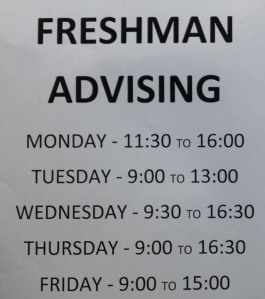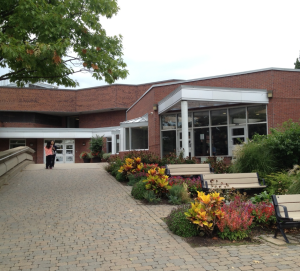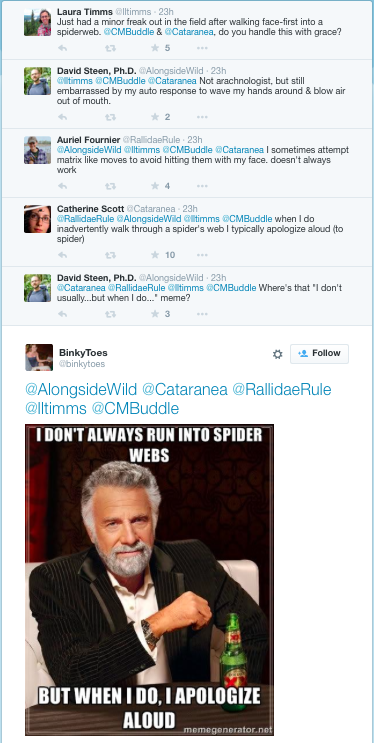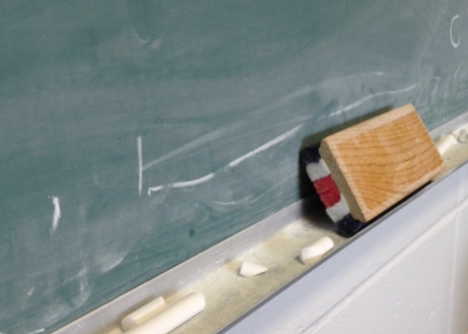Note: this is an updated/edited post, it was originally published several years ago.
The start of term is an exciting time for those of us who work at a University. There are many new students arriving on campus, full of enthusiasm, hope, and questions. As an Associate Dean, I meet many of these students, and I am often asked for advice during orientation week. Later in the term, I sometimes see students who are struggling, and looking for strategies to help with balancing their academic work with other priorities, or looking for ways to make their time at University a little easier. So, here are my twelve tips for success at University:
1. Work hard. At the end of the day, hard work pays off. You made it into University, which suggests you have the fundamental skill set required for higher education. However, don’t forget to keep your eye on the ball and buckle down and get the work done! It’s easy to get swayed by social life, students clubs and activities, athletics, and by trips home to see family. These things are all important, and your well-being often depends on these extracurricular activities but academic success largely rests with a developing and maintaining a strong work ethic. Make lists, prioritize, and focus on getting the “job” of being a student done well.

2. Listen to your academic advisor: Most academic programs have an ‘academic advisor’ associated with them (e.g., see here for McGill’s website about advising). These individuals are there to help you get through your program. Advisors typically help with course selection, and help plan an academic program from start to finish. When arriving on campus, you should book a meeting with your advisor, and more importantly, listen to their advice! Advisors know the ins and outs of your program, and paying attention to them will help you in the long run. You don’t want to end up messing up your academic program because you decided to avoid taking required courses early on in your program! Advisors can also help you get on the correct path should you wish to pursue research or internships later in your program, or a term away such as a field semester or an exchange program.
3. Have an agenda, and use it: This seems like pretty obvious advice, but you would be surprised how many students (and Professors!) don’t have a good system for managing time. University is a lot about managing your time: getting to classes, dealing with e-mails, assignments, planning for exams, and squeezing in a social life, or a part-time job. It’s a struggle to manage all these tasks, and therefore it is essential to develop a clear and straightforward system of ‘calendar + tasks‘. Under calendar, include your class schedule, important dates and meetings, and most importantly, LOOK at the calendar regularly! I personally prefer using an on-line calendar that syncs with my mobile devices - but some people prefer the old-fashion (yet dependable) hard-copy calendar. For tasks, include short-term tasks (with deadlines - cross-referenced with your calendar) and long-term tasks, so that you are reminded of on a regular basis. I use a small notebook for my task list, and it is always with me - for me, the act of physically writing down a task list helps me remember what I need to work on. A good system for your agenda and tasks will make your life a lot easier. Using an agenda and task list properly will also help you refine your time management skills, and these skills are truly essential to future success almost anywhere.
4. Show up on time and don’t miss deadlines: Again, this seems pretty obvious, but it’s also pretty easy to mess up. Treat University like a professional job - you need to be mature, you must be on time, and never miss deadlines. Try to have everything done early (with good time management skills, this is very possible!). Being late to lectures, or having to ask for extensions on papers or projects (without extenuating circumstances), does you no favours, and Professors, generally speaking, are not impressed by these behaviours. At some point, you may need to ask your Professors for a letter of reference, and it is much better to be remembered as the students who hands in papers early, then a student who can’t manage deadlines.

5. Go to class: Lectures, labs and seminars are there for a reason: they provide you with value-added content, and a context for the course materials. It’s true that some of the content may be available on-line, or with a text-book, but in most cases, lectures or labs will help to draw connections between different content, and/or provide a valuable context to the material that might be available elsewhere. Labs or seminars provide important opportunity for hands-on and interactive learning, and this cannot be replaced easily. Instructors take a lot of pride in lecturing or leading a lab demonstration, and most of them work hard to make the time worthwhile, interesting, and thought-provoking. You will soak up an amazing amount of material by just being there, and paying attention.
6. Keep up! This point is closely related to the previous few ideas - but is important to keep in mind as a separate item. Assignments at University tend to sneak up on you - deadlines seem so far away, until you realize that there are three written reports due within a two week period, with Thanksgiving in the middle! Similarly, lecture content builds upon itself, and assuming you will just naturally be able to keep up may not be the best idea. Try to build some habits in your life so that you review the content soon after each lecture or laboratory, and/or spend a bit of time each morning prepping for your day and keeping an eye on the week ahead. Do your best to stay on top of the material: in my experience, if students start to fall behind a little bit, this quickly spirals as the weeks pass by, and the stress level increases as you try cram for an assignment or final exam.
7. Get help when you are struggling: At some point in your University career you will likely need help, whether it is with difficulties with finances, a personal relationship, failing a course, or struggles with mental or physical health. The University system is a compassionate and collegial environment and it’s a place with a lot of wonderful resources to help you when you are struggling (e.g., see this example for McGill). Don’t hesitate to seek help when you need it, or if you know you already have some struggles with anxiety or depression, be sure to be aware of what resources are available to you ahead of time. If you are feeling sick, visit health services. If you are struggling with your program, touch base with your academic advisor. If you are feeling overwhelmed or isolated, touch base with counseling services. Know that you are not alone in your struggles (although it may feel that way), and the community will support you. As part of this community, you also have a responsibility to keep an eye on your classmates and friends, and if they need help, you can be in a position to direct them to the right resources.
8. Ask questions: In most of my classes, I tell students that there are no stupid questions (except for “Will this be on the exam?”). This is very, very true. If you are confused about a concept, or failed to get the point of a slide, or discussion, you must ask for clarification. Although it can be intimidating to ask a question in a large lecture hall, it’s important to try. If you are confused, it’s highly likely that other student’s are also confused. You are helping yourself, and your peers, when you put your hand up. In many cases, there is a on-line course management system for each class, and often there are discussion boards available: this provides another opportunity to ask questions of your instructor or TA, or you can ask questions that your peers may be able to help with.
9. Get to know your instructors: Whenever possible, get to know the instructors of your courses, be they Professors, Lecturers, or Teaching Assistants. Most instructors have office hours, and these hours are there for good reason - they provide time to meet your instructor, ask questions, and have a personal connection with them. Don’t be intimidated by instructors: we are people, too, and most of us recognize that life as an undergraduate student can be stressful and difficult. We can provide you help with course content, but also help direct you to other resources. Getting to know your instructors also helps when you might be seeking a summer job in the future, or when you need a letter of recommendation.
10. Avoid ‘grade panic’: I am living proof that it is possible to do poorly at undergraduate courses yet still have a successful career! When I was an undergraduate student at the University of Guelph, I just about failed my first year physics course and I was terrified that this would make it impossible to succeed in any kind of career. Of course this was not the case - a University education is much more than a single course, or a single quiz or examination - an academic program has many components and even if some of the components fall off the rails, this does not mean everything is lost. Aim for excellence in your academics, but also remember that EVERYONE has bad days, performs poorly on an exam, or just can’t seem to figure out a particular subject. This is normal, and you must keep everything in perspective! Your University career is not defined by a single moment of failure - keep the bigger picture in mind, and don’t sweat the small failures. In a University environment, success at everything is nearly impossible to achieve. Keep a level head, keep calm, aim for excellence, but don’t panic when things go wrong.

11. Stay healthy: Your mother was right - eat your vegetable and get some sleep. Invariably, influenza and/or a bout of gastro will whip through residence halls sometime around when mid-term exams are starting. Your best line of defense is a healthy immune system, and part of that includes nutrition, sleep, and exercise. I think it’s more important to be less prepared but well rested than over-prepared and exhausted - and if you attended lectures, your rested mind will be in a good position to access the course content. Related to this is a little reminder to “slow down” every now and then (I need to remind myself of this, daily). Take some deep breaths, perhaps meditate or do yoga, or just find a bit of quiet time now and then to pause and reflect.
12. Have fun! Life as an undergraduate student is truly incredibly. It is a time of personal growth and reflection, and it is an enriching experience on intellectual, emotional, and social levels. Remember that you are immersed in an amazing experience. University provides a wealth of opportunities (student groups, sports, lectures, laboratories, and more), and you will make close friends, meet future colleagues, business partners or partners in life. Don’t forget to take it all in - in the future, you will remember a lot of details from your University days and you want these memories to be more than sweating over deadlines and grade panic. Stay well.















